For additional faculty information, please visit the Liberal Arts Faculty page.
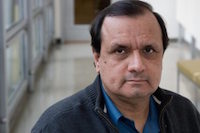
I received my Ph. D. degree in Comparative Literature from the University of Southern California in 1998. Based on my dissertation, my first book, Mestizo Nations: Culture, Race, and Conformity in Latin American Literature (U of Arizona P 2002), explores the construction of nationality in Spanish American, Brazilian and Chicano literature and thought during the 19th and 20th centuries. My following book, The Spaces of Latin American Literature: Tradition, Globalization and Cultural Production (Palgrave 2008) looks at how Latin American writers, artists, and intellectuals have negotiated their relationship with Western culture. More recently, I have studied the writings and public activities of the Peruvian novelist Mario Vargas Llosa, the 2010 Nobel Prize Winner, in my monograph Mario Vargas Llosa: Public Intellectual in Neoliberal Latin America (U of Arizona P 2011), and in my edited volumes Vargas Llosa and Latin American Politics, with Nicholas Birns, (Palgrave 2010) and Critical Insights: Mario Vargas Llosa. I am currently working on a new project on the works and life of José Carlos Mariátegui (1894-1930), the Peruvian scholar and revolutionary activist. My research has both informed and been derived from my teaching in at Eugene Lang College, where I am an Associate Professor in Literary Studies. Some of the courses on 20th and 21st century Latin American literature I have taught, or am scheduled to teach, are: “Literature and Revolution in Latin America,” “Latin American Literature in the 1960s: The Boom,” “Shining Paths: Representing Political Violence in Peru,” and “Contemporary Spanish-American Literature.” Among the authors I have taught are such diverse figures as José Martí, Jorge Luis Borges, Elena Poniatowska, Gabriel García Márquez, Roberto Bolaño, Sabina Berman, and Juan Gabriel Vásquez.
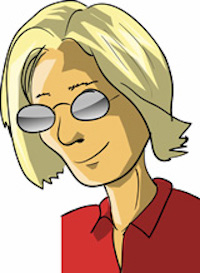
I have published two books of creative nonfiction and a number of literary and arts essays. My first book, In the City: Random Acts of Awareness, was published by W.W. Norton in 2001 and won the PEN/Jerard Fund Award for a distinguished work of nonfiction (2001). My second book, Lost in Wonder: Imagining science and other mysteries, was published by Counterpoint Press in 2010 and designated Finalist/Honorable Mention in the 2010 Grub Street National Book Prize in Nonfiction. In my youth I got a BA from Reed College and an MFA from the Yale School of Drama. My literary and cultural essays have appeared in many publications, among them Partisan Review, The New York Times, The Georgia Review, Virginia Quarterly Review, The New Republic and Hotel Amerika. My creative nonfiction essays have twice received a “Notable Essays” designation in the annual Best American Essays volumes. I have received a Rockefeller Humanities Fellowship and several writer’s residencies at the Yaddo arts colony among other acknowledgments. But each book begins with a blank page. I believe that writing (and teaching) are deeply rewarding ways to engage the world within and outside oneself, and require a lifelong commitment to uncertainty and surprise. I try to cultivate that awareness in my classes. Some of my work can be found at www.colettebrooks.com.
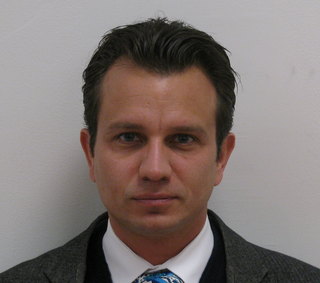
I was born and raised primarily in New Jersey but also spent formative years in the U.S. Virgin Islands and North Carolina. I received an AB in Politics from Princeton University and a PhD in Political Theory from Harvard University, where my dissertation was granted the Sumner Prize, the highest award in the social sciences. In 2000 I began teaching at Lang and earned an MFA in Creative Writing from the New School in 2003. My first novel, Huge, was published by Crown/Three Rivers Press in 2009, garnering starred reviews and critical acclaim from such disparate publications as People Magazine, USA Today, and Bookpage, among others. My work in political theory, Mestizo Rhetoric: The Political Thought of El Inca Garcilaso de la Vega, is due out from University of Pittsburgh Press in the coming year. Also a Spanish translator, my academic essays appear in English and Spanish, and my fiction has been translated into Italian, Czech, and Korean.
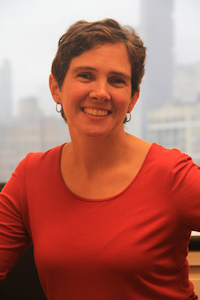
Degrees received: B.A. in the College of Letters at Wesleyan University, M.A. in Comparative Literature at the University of Minnesota, and Ph.D. in Comparative Literature at Brown University.
I first read Jane Eyre as a teenager in a Reader’s Digest Condensed Version. I was strongly affected by the novel — by the image of the terrible Red Room, the mysterious interruptions in conversations, and the heroine’s richly detailed inner life. Even as I fell in love with the complexity of Charlotte Bronte’s verbal images, I began to wonder what I was missing. At first, this was just an interest in narrative, satisfied by finding a more complete edition. As I grew older, however, the same desire pushed me to explore in and around the margins of the text, including its historical contexts. While I am now three decades removed from my first encounter with Jane Eyre, I am still pursuing what makes not just this particular novel, but literature in general, so compelling to readers.
This is one reason why I love teaching students of many backgrounds: as a collective, we can draw upon a diverse set of individual readings (and re-readings) at different times in our lives. My love of literature is inseparable from an interest in other worlds, extending into the past and beyond American borders. At Wesleyan University, I majored in the College of Letters – an integrated program in history, literature, and philosophy – with a focus on French, choosing to spend a year enrolled as a foreign student at a French university. When I decided to seek a Ph.D., I thus combined my longstanding passion for English as well as French (not to mention Dutch and Spanish) literature, by majoring in comparative literature. Recent publications: Creole Crossings: Domestic Fiction and the Reform of Colonial Slavery (Cornell Univ. Press); reviews of Anatomy of Blackness and Feeling for the Poor; “On the Reform Act of 1832.”
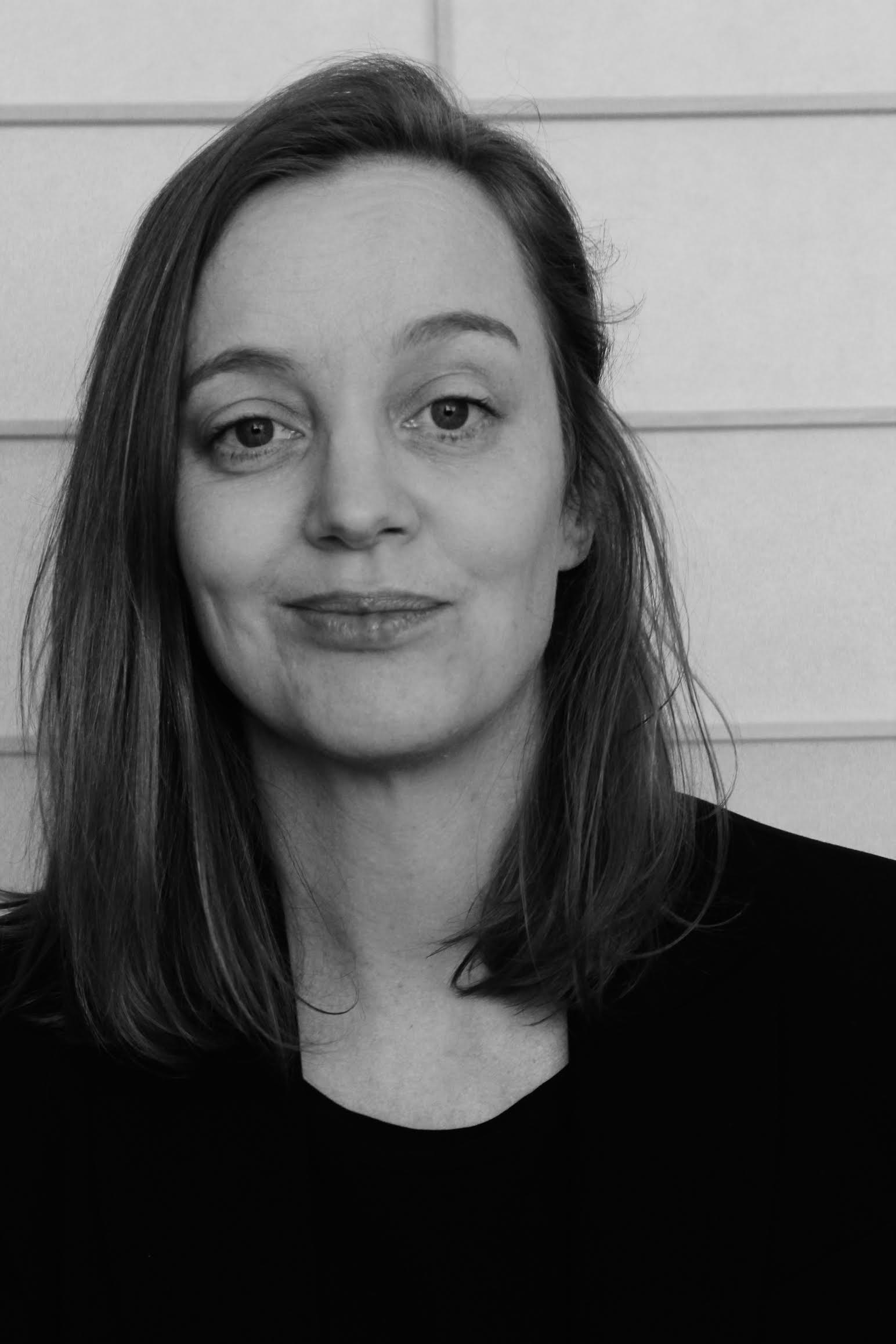
Angela Carr is the author of three books of poetry. Her most recent book is Here in There (2014), which was shortlisted for the A.M. Klein award. A translator from French, she has also published a number of translations. The most recent of these is coming out this fall 2015 with Coach House books, a book of poetry, Ardour (a translation of Nicole Brossard’s Ardeur).
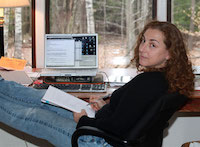
Trained as a scholar of 20th Century U.S. culture (Stanford, PhD in Modern Though & Literature), and as a fiction writer (VCFA, MFA), motivated by political values and ethical commitments, and thrilled to work with other people, I write non/fiction on and about the world. I’m obsessed with ways of representing history and what language can do and trying to make the world more just and peaceful. In other words, I try to keep it fun.Writing is a complex social practice. All acts of writing and reading take place in a specific historical moments and cultural contexts, and each one depends on other practices and multiple people. My courses tend to look at the social stakes of Writing and Literature, investigating the ways in which literary values are political values.
Who cares about Writing and Literature: when do you see Literature in the news, and what is being negotiated at those moments – e.g., the huge sales of a blockbuster such as Harry Potter; the sanctity of nonfiction as true fact; national ownership of Kafka’s manuscripts; etc.? The same questions are in play in Writing On It All, a public participatory writing project in which interested members of the public come together in facilitated workshop session, to write on the inside of a historic house. What happens when literary authority and hierarchy are sidelined, and diverse strangers collaborate in acts of writing that dramatize their own materiality and physicality, their own specific locations. The project takes place on Governors Island in June.

I see myself primarily as a novelist, influenced by a Goethean sense of world literature that demands widespread, constant reading of works of fiction from different parts of the world as well as history, politics, and ideas. But there are two other kinds of writing that supplement my central interest in fiction; literary criticism for a general audience and nonfiction based on reporting and research. The first allows me to consider questions of art and technique with intellectual rigor, reflecting my academic training in literature. The second emerges out of the work I have done as a journalist and makes me get out on the road and meet people and places, the rough, everyday material from which fiction is created.
I bring all of these above interests and approaches into the classroom, and from my students I expect a similar wide-ranging engagement, demonstrating the artist’s passion, the critic’s intellect, and the reporter’s endurance.
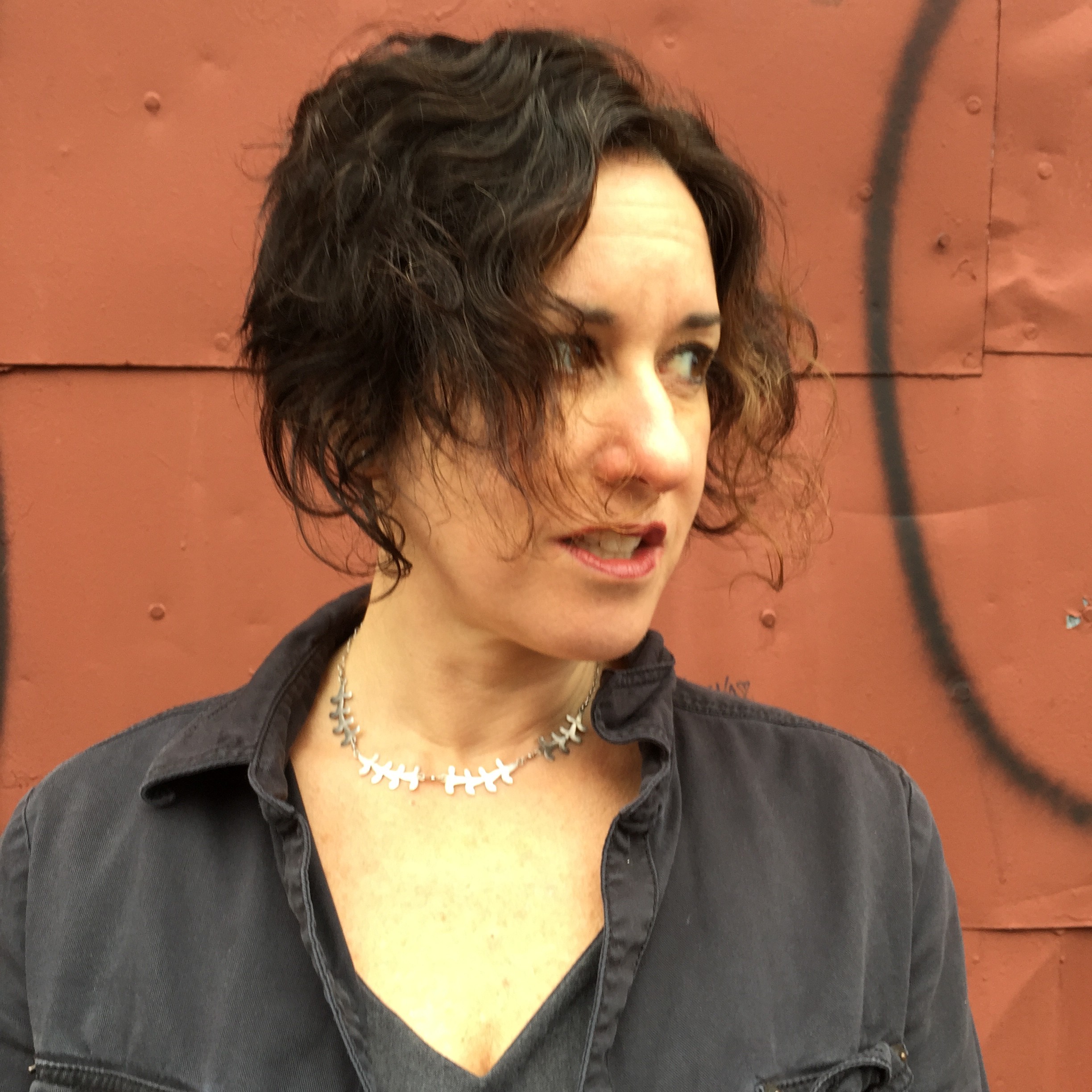
Jennifer Firestone is a poet and critic whose research and teaching interests include 20th and 21st century experimental poetry and poetics, with emphasis on The Feminist Avant-garde, Cross-cultural Poetics, The Language School, The Objectivists, The New York School of Poets, Black Arts, Documentary and Investigative Poetics, Cross-Genre Texts, The Epistolary Form, Procedural & Constraint-based Poetics, Projects of Community and Collaboration, and small press publishing.
Firestone uses the classroom as an experimental lab, challenging her students to implode their definitions of “poetry” by considering poems as critical and investigative lenses. Her students are exposed to innovative activities such as the walking sonnet (walking fourteen NYC blocks while writing a sonnet line per block) or participating in semester-long epistolary correspondences with a classmate about one’s developing poetics.
Firestone received her MFA from San Francisco State University. Her books include Flashes (Shearsman Books), which was Poetry Foundation’s Harriet Blog’s “Poetry Pick” for 2013, Holiday (Shearsman Books), Waves (Portable Press at Yo-Yo Labs), from Flashes and snapshot (Sona Books) and Fanimaly (Dusie Kollektiv). Firestone co-edited (with Dana Teen Lomax) Letters To Poets: Conversations about Poetics, Politics and Community (Saturnalia Books), a year-long experiment documenting letter exchanges between fourteen poet-pairs. Firestone co-authored LITtle by LITtle with photographer and urban geographer, Laura Y. Liu. Firestone’s work has been published in many journals including: Volta, Drunken Boat, How2 and Xcp: Cross Cultural Poetics. She has work anthologized in Kindergarde: Avant-Garde Poems, Plays, Songs, & Stories for Children and Building is a Process / Light is an Element: essays and excursions for Myung Mi Kim. Firestone won the 2014 Marsh Hawk Press’ Robert Creeley Memorial Prize. Firestone is a member of the Belladonna* Collaborative, a feminist poetry collective and event series.
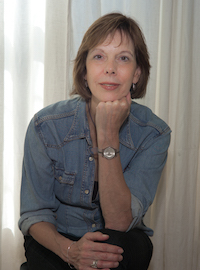
Elizabeth Kendall has written five books: Balanchine and the Lost Muse (2013); Autobiography of a Wardrobe (2006); American Daughter, a memoir (2000); The Runaway Bride: Hollywood Romantic Comedy of the l930’s (1990), and Where She Danced: The Birth of American Art-Dance (1979). She is a tenured Associate Professor, at New School’s Eugene Lang College and at the Liberal Studies graduate faculty. She has also taught at Princeton, Sarah Lawrence, Columbia, Bard, Russia’s Smolny College, and summer writing courses, and she has published articles in many publications, from Vogue to the New Yorker, and worked on several television documentaries about dance. She has held fellowships from the Rockefeller Foundation, Ford Foundation, Guggenheim Foundation, Cullman Center of the New York Public Library, Fulbright International Exchange Program, Russia’s Dmitry Likhachev Foundation, and Leon Levy Center for Biography at CUNY. She graduated from Radcliffe College and Harvard Graduate School of Education.
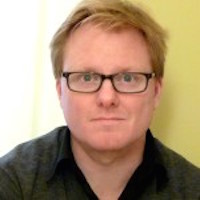
Paul Kottman is Associate Professor of Comparative Literature, with an affiliation in the Department of Philosophy, at the New School for Social Research and Lang College, the New School for Liberal Arts. Kottman is the author of Tragic Conditions in Shakespeare (Johns Hopkins University Press, 2009), A Politics of the Scene (Stanford University Press, 2008) and the editor of Philosophers on Shakespeare (Stanford University Press, 2009). He is currently working on a book project, tentatively entitled “Romantic Love as Human Freedom.” Kottman is also the editor of a new book series at Stanford University Press, called Square One: First-Order Questions in the Humanities.
Kottman is the recipient of a fellowship at the Center for Advanced Study at the Universität zu Köln, a Solmsen post-doctoral fellowship, and a fellowship from the Mellon foundation. He has held visiting positions at the University of Tokyo, Università degli studi di Verona, Università del Piemonte Orientale, Instituto per gli studi filosofici in Naples, and holds a Habilitation as full Professor of Philosophy, Aesthetics, in Italy. Kottman’s writing has appeared in The Cambridge Companion to Shakespearean Tragedy, the Oxford Handbook to Shakespearean Tragedy, and various other volumes, and in journals such as Diacritics, Shakespeare Quarterly, Constellations, the Los Angeles Review of Books, Revue Internationale de Philosophie, The Oxford Literary Review, Criticism, among other venues. External website: paulkottman.com
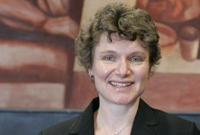
Areas of Expertise:
Tolstoy, Russian and Eastern European literature, intellectual and cultural history, Eastern European Jewish secular thought, ideology and education, philosophy and literature
Profile:
PhD, Slavic Languages and Literatures, Princeton University. As a scholar and educator, Inessa Medzhibovskaya is interested in how literature transmits human values in their cultural and historical specificity and universality and how it reveals worlds hidden from view. She has published widely on Tolstoy, both in North America and abroad, and has also written on Pushkin, the Russian Jewish philosopher Simon Frank, ideology and childhood, and the interplay of philosophy and literary aesthetics. She is currently working on two monographs: Tolstoy in the Twentieth Century (for Princeton University Press) and a study titled “Writing and Confinement.” Ms. Medzhibovskaya also edited and wrote introductions to the forthcoming volumes Tolstoy in the Twenty-First Century and On Life (the annotated critical edition of Tolstoy’s work O zhizni, co-translated with Michael Denner).
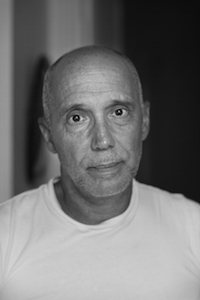
What I Write: My poetry, fiction, and essays draw on a wide range of influences, including Charles Olson, Gertrude Stein, George Orwell, and Samuel Beckett. Or the TV commercial I saw yesterday. Or the religious pamphlet I read on the subway an hour ago. While I am a great advocate of writing that bids, through stylistic innovation, to cast experience anew, my tastes are energetically catholic and extend both broadly (across the arts) and deeply (from high to popular culture). What unites my efforts across genres is the attempt to represent how thinking happens—what it sounds like, feels like, and looks like—on a page. It really can’t be done, but there is some amusement to be had in trying. And even some knowledge—chiefly about the gap between what I think I think and what I think when I write it—to be gained.
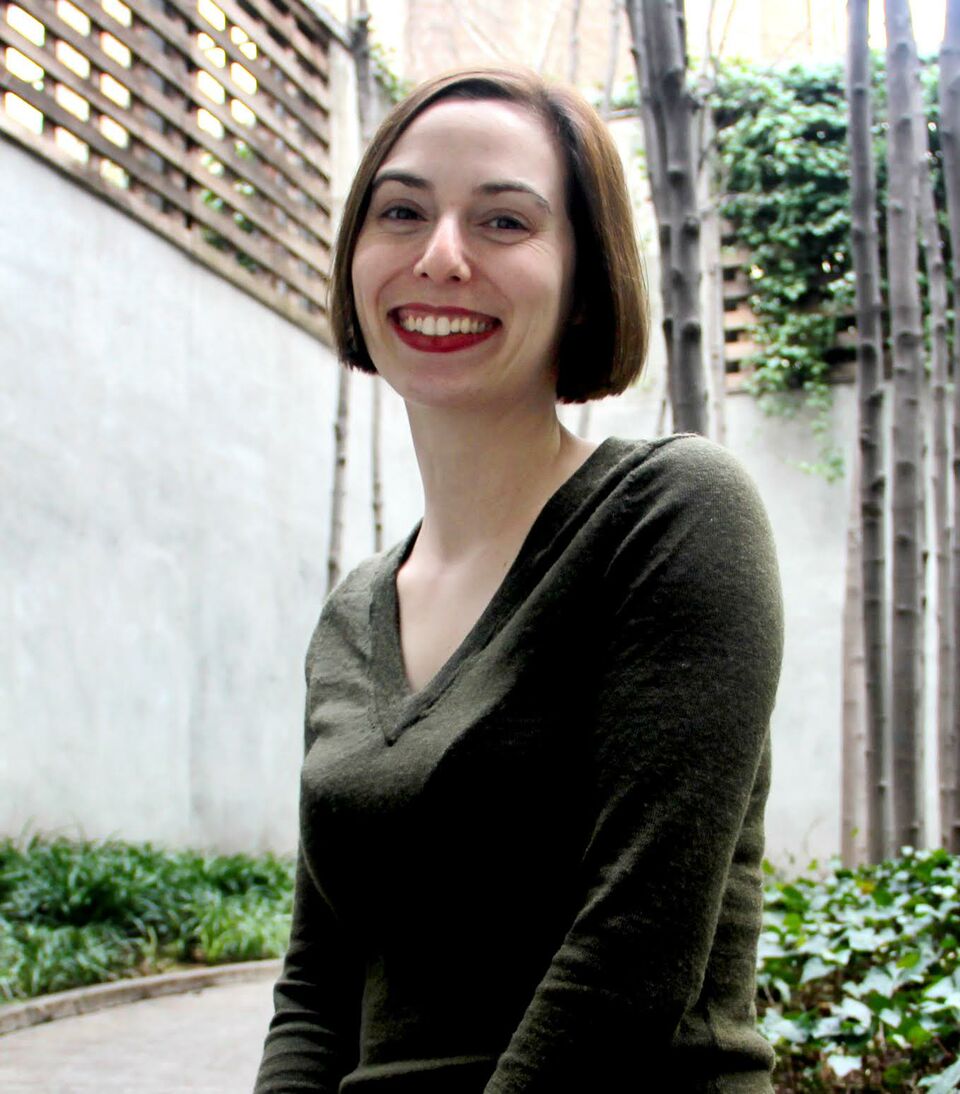
Julie Beth Napolin is Assistant Professor of Digital Humanities. In 2010, she received a PhD in Rhetoric from UC Berkeley. Her work participates in the fields of sound studies, American studies, critical race studies, and literary modernism, asking what practices and philosophies of listening in the 20th century and beyond can tell us about the modernist novel as form. She is interested in the digital humanities as an emerging discipline, and served as an Associate Director of “Digital Yoknapatawpha,” an online mapping of the fictional world of William Faulkner. She is also a radio producer and practicing musician, recently teaching a course in collaboration with Michael Garofalo of StoryCorps, helping students to create a radio oral history of the New School and Greenwich Village. In 2010, as one half of the duo, Meridians, she released a cassette in Portugal, and is currently at work on a new album that engages, in sound, the questions of memory and echo that drive her work. In 2012, her essay “A Sinister Resonance: Vibration, Sound, and the Birth of Conrad’s Marlow” (published in Qui Parle) was awarded the Joseph Conrad Society of America Young Scholar Prize. Her essay on the phonograph in Faulkner’s As I Lay Dying is forthcoming in January in Fifty Years After Faulkner (ed. Jay Watson and Ann Abadie).
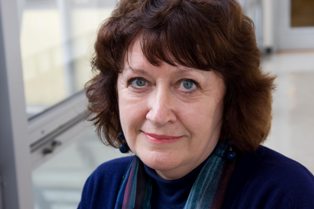
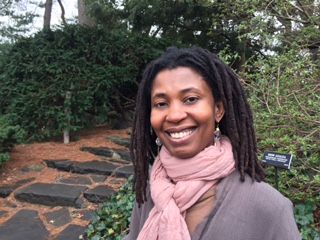
Associate Professor Rose Réjouis received her PhD in Romance Languages and Literatures at Princeton University and her BA in English and French at Amherst College. She works at the intersections of literature, postcolonial theory, political theology, anthropology, Jewish thought, class and race. Her book, Veillées pour les mots [Wakes for Words]: Aimé Césaire, Patrick Chamoiseau et Maryse Condé (Paris: Karthala, 2005) is a study of the motif of the funerary wake in the Caribbean novel, tracing an evolution from the revolutionary politics of the martyr on the stage of the world to the storyteller-writer’s local activism. The book examines what is at stake in a move from narratives centered on the suffering that attends the hero’s martyrdom to those that describe the mourning that frames the work of a storyteller. Rose Réjouis is best known for her co-translations of Francophone fiction: Marie Vieux Chauvet’s trilogy Love, Anger, Madness, a project supported by a Guggenheim Fellowship; Patrick Chamoiseau’s novel Texaco, winner of the American Translators Association Galantière Prize for Best Book; Emmanuel Dongala’s Little Boys Come from the Stars, and Solibo Magnificent, also by Chamoiseau. These translations have been reviewed prominently in The New Yorker, the New York Times, the New York Times Book Review, the New Republic, TLS, London Review, The New York Review of Books, and elsewhere. Most recently, several of her essays have appeared in Small Axe: A Caribbean Journal of Criticism and French Literature Series. Her essay (co-authored with Val Vinokur) on ekphrasis and collaboration in Anna Karenina on page and screen is forthcoming in Tolstoy Studies Journal.
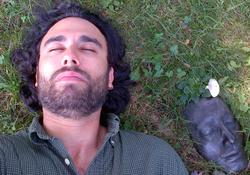
I have taught at The New School since 2001, and currently serve as Director of Jewish Culture, Chair of Literature, Culture & Democracy in the Adult Bachelors Program, and Associate Professor of Literary Studies at Eugene Lang College. My essays, fiction, and poetry have been published in Common Knowledge, The Boston Review, McSweeney’s, The Russian Review, Zeek, The Massachusetts Review, Journal of Religion and Society, The Literary Review, and New American Writing. My book, The Trace of Judaism: Dostoevsky, Babel, Mandelstam, Levinas (Northwestern University Press), was a finalist for the 2009 AATSEEL Award for Best Book in Literary/Cultural Studies. Rose Réjouis and I received a Guggenheim Fellowship in support our translation of Marie Vieux-Chauvet’s trilogy Amour, Colere et Folie for Random House Modern Library (2009). Our co-translations of Patrick Chamoiseau’s novels (for Pantheon Books) won the American Translators Association Lewis Galatiere Prize for Best Book in 1998, and were reviewed by John Updike, Derek Walcott, and Leonard Michaels. I am currently editing and re-translating a new edition of Isaac Babel’s “Collected Stories” for Northwestern University Press.
For additional faculty information, please visit the Liberal Arts department page.

Ann Snitow May 9, 1943-August 10, 2019 Ann Snitow, a founding faculty member of Lang College and the creator of the Gender Studies Program at the New School, passed away on August 10, 2019. She was a beloved member of the Literary Studies faculty. While indeed her books and essays are crucial texts in feminist studies and in the life of the mind, as Literary Studies colleagues our remembrances here are more personal, testaments not just to her work but to the power of her being.
No Upcoming Events found!
June 30, 2020

A collection of inspiring student work, faculty writing, and more from the Literary Studies department at Eugene Lang. Even though the Lang community might be apart, we are still reading, writing, and creating, together. Eleven and a Half – An interactive (and downloadable) version of Eugene Lang College’s premier Literary Journal.
October 10, 2019

Ann Snitow May 9, 1943-August 10, 2019 Ann Snitow, a founding faculty member of Lang College and the creator of the Gender Studies Program at the New School, passed away on August 10, 2019. She was a beloved member of the Literary Studies faculty. While indeed her books and essays are crucial texts in feminist studies and in the life of the mind, as Literary Studies colleagues our remembrances here are more personal, testaments not just to her work but to the power of her being.
April 19, 2017

The Literary Studies department is proud to announce the inaugural Robin Mookerjee award, which will honor a student whose creativity and passion for literature have some of the features of Professor Mookerjee’s writing and teaching. This award will be presented at the Dean’s List and Student Award Ceremony to be held in Tishman Auditorium on Monday, April 24, 2017 at 6pm. The presentation of the award will be accompanied by a special tribute to Professor Mookerjee. […]
© 2015 Eugene Lang College of Liberal Arts. Website by POTG Design.
For additional faculty information, please visit the Liberal Arts Faculty page.

I received my Ph. D. degree in Comparative Literature from the University of Southern California in 1998. Based on my dissertation, my first book, Mestizo Nations: Culture, Race, and Conformity in Latin American Literature (U of Arizona P 2002), explores the construction of nationality in Spanish American, Brazilian and Chicano literature and thought during the 19th and 20th centuries. My following book, The Spaces of Latin American Literature: Tradition, Globalization and Cultural Production (Palgrave 2008) looks at how Latin American writers, artists, and intellectuals have negotiated their relationship with Western culture. More recently, I have studied the writings and public activities of the Peruvian novelist Mario Vargas Llosa, the 2010 Nobel Prize Winner, in my monograph Mario Vargas Llosa: Public Intellectual in Neoliberal Latin America (U of Arizona P 2011), and in my edited volumes Vargas Llosa and Latin American Politics, with Nicholas Birns, (Palgrave 2010) and Critical Insights: Mario Vargas Llosa. I am currently working on a new project on the works and life of José Carlos Mariátegui (1894-1930), the Peruvian scholar and revolutionary activist. My research has both informed and been derived from my teaching in at Eugene Lang College, where I am an Associate Professor in Literary Studies. Some of the courses on 20th and 21st century Latin American literature I have taught, or am scheduled to teach, are: “Literature and Revolution in Latin America,” “Latin American Literature in the 1960s: The Boom,” “Shining Paths: Representing Political Violence in Peru,” and “Contemporary Spanish-American Literature.” Among the authors I have taught are such diverse figures as José Martí, Jorge Luis Borges, Elena Poniatowska, Gabriel García Márquez, Roberto Bolaño, Sabina Berman, and Juan Gabriel Vásquez.

I have published two books of creative nonfiction and a number of literary and arts essays. My first book, In the City: Random Acts of Awareness, was published by W.W. Norton in 2001 and won the PEN/Jerard Fund Award for a distinguished work of nonfiction (2001). My second book, Lost in Wonder: Imagining science and other mysteries, was published by Counterpoint Press in 2010 and designated Finalist/Honorable Mention in the 2010 Grub Street National Book Prize in Nonfiction. In my youth I got a BA from Reed College and an MFA from the Yale School of Drama. My literary and cultural essays have appeared in many publications, among them Partisan Review, The New York Times, The Georgia Review, Virginia Quarterly Review, The New Republic and Hotel Amerika. My creative nonfiction essays have twice received a “Notable Essays” designation in the annual Best American Essays volumes. I have received a Rockefeller Humanities Fellowship and several writer’s residencies at the Yaddo arts colony among other acknowledgments. But each book begins with a blank page. I believe that writing (and teaching) are deeply rewarding ways to engage the world within and outside oneself, and require a lifelong commitment to uncertainty and surprise. I try to cultivate that awareness in my classes. Some of my work can be found at www.colettebrooks.com.

I was born and raised primarily in New Jersey but also spent formative years in the U.S. Virgin Islands and North Carolina. I received an AB in Politics from Princeton University and a PhD in Political Theory from Harvard University, where my dissertation was granted the Sumner Prize, the highest award in the social sciences. In 2000 I began teaching at Lang and earned an MFA in Creative Writing from the New School in 2003. My first novel, Huge, was published by Crown/Three Rivers Press in 2009, garnering starred reviews and critical acclaim from such disparate publications as People Magazine, USA Today, and Bookpage, among others. My work in political theory, Mestizo Rhetoric: The Political Thought of El Inca Garcilaso de la Vega, is due out from University of Pittsburgh Press in the coming year. Also a Spanish translator, my academic essays appear in English and Spanish, and my fiction has been translated into Italian, Czech, and Korean.

Degrees received: B.A. in the College of Letters at Wesleyan University, M.A. in Comparative Literature at the University of Minnesota, and Ph.D. in Comparative Literature at Brown University.
I first read Jane Eyre as a teenager in a Reader’s Digest Condensed Version. I was strongly affected by the novel — by the image of the terrible Red Room, the mysterious interruptions in conversations, and the heroine’s richly detailed inner life. Even as I fell in love with the complexity of Charlotte Bronte’s verbal images, I began to wonder what I was missing. At first, this was just an interest in narrative, satisfied by finding a more complete edition. As I grew older, however, the same desire pushed me to explore in and around the margins of the text, including its historical contexts. While I am now three decades removed from my first encounter with Jane Eyre, I am still pursuing what makes not just this particular novel, but literature in general, so compelling to readers.
This is one reason why I love teaching students of many backgrounds: as a collective, we can draw upon a diverse set of individual readings (and re-readings) at different times in our lives. My love of literature is inseparable from an interest in other worlds, extending into the past and beyond American borders. At Wesleyan University, I majored in the College of Letters – an integrated program in history, literature, and philosophy – with a focus on French, choosing to spend a year enrolled as a foreign student at a French university. When I decided to seek a Ph.D., I thus combined my longstanding passion for English as well as French (not to mention Dutch and Spanish) literature, by majoring in comparative literature. Recent publications: Creole Crossings: Domestic Fiction and the Reform of Colonial Slavery (Cornell Univ. Press); reviews of Anatomy of Blackness and Feeling for the Poor; “On the Reform Act of 1832.”

Angela Carr is the author of three books of poetry. Her most recent book is Here in There (2014), which was shortlisted for the A.M. Klein award. A translator from French, she has also published a number of translations. The most recent of these is coming out this fall 2015 with Coach House books, a book of poetry, Ardour (a translation of Nicole Brossard’s Ardeur).

Trained as a scholar of 20th Century U.S. culture (Stanford, PhD in Modern Though & Literature), and as a fiction writer (VCFA, MFA), motivated by political values and ethical commitments, and thrilled to work with other people, I write non/fiction on and about the world. I’m obsessed with ways of representing history and what language can do and trying to make the world more just and peaceful. In other words, I try to keep it fun.Writing is a complex social practice. All acts of writing and reading take place in a specific historical moments and cultural contexts, and each one depends on other practices and multiple people. My courses tend to look at the social stakes of Writing and Literature, investigating the ways in which literary values are political values.
Who cares about Writing and Literature: when do you see Literature in the news, and what is being negotiated at those moments – e.g., the huge sales of a blockbuster such as Harry Potter; the sanctity of nonfiction as true fact; national ownership of Kafka’s manuscripts; etc.? The same questions are in play in Writing On It All, a public participatory writing project in which interested members of the public come together in facilitated workshop session, to write on the inside of a historic house. What happens when literary authority and hierarchy are sidelined, and diverse strangers collaborate in acts of writing that dramatize their own materiality and physicality, their own specific locations. The project takes place on Governors Island in June.

I see myself primarily as a novelist, influenced by a Goethean sense of world literature that demands widespread, constant reading of works of fiction from different parts of the world as well as history, politics, and ideas. But there are two other kinds of writing that supplement my central interest in fiction; literary criticism for a general audience and nonfiction based on reporting and research. The first allows me to consider questions of art and technique with intellectual rigor, reflecting my academic training in literature. The second emerges out of the work I have done as a journalist and makes me get out on the road and meet people and places, the rough, everyday material from which fiction is created.
I bring all of these above interests and approaches into the classroom, and from my students I expect a similar wide-ranging engagement, demonstrating the artist’s passion, the critic’s intellect, and the reporter’s endurance.

Jennifer Firestone is a poet and critic whose research and teaching interests include 20th and 21st century experimental poetry and poetics, with emphasis on The Feminist Avant-garde, Cross-cultural Poetics, The Language School, The Objectivists, The New York School of Poets, Black Arts, Documentary and Investigative Poetics, Cross-Genre Texts, The Epistolary Form, Procedural & Constraint-based Poetics, Projects of Community and Collaboration, and small press publishing.
Firestone uses the classroom as an experimental lab, challenging her students to implode their definitions of “poetry” by considering poems as critical and investigative lenses. Her students are exposed to innovative activities such as the walking sonnet (walking fourteen NYC blocks while writing a sonnet line per block) or participating in semester-long epistolary correspondences with a classmate about one’s developing poetics.
Firestone received her MFA from San Francisco State University. Her books include Flashes (Shearsman Books), which was Poetry Foundation’s Harriet Blog’s “Poetry Pick” for 2013, Holiday (Shearsman Books), Waves (Portable Press at Yo-Yo Labs), from Flashes and snapshot (Sona Books) and Fanimaly (Dusie Kollektiv). Firestone co-edited (with Dana Teen Lomax) Letters To Poets: Conversations about Poetics, Politics and Community (Saturnalia Books), a year-long experiment documenting letter exchanges between fourteen poet-pairs. Firestone co-authored LITtle by LITtle with photographer and urban geographer, Laura Y. Liu. Firestone’s work has been published in many journals including: Volta, Drunken Boat, How2 and Xcp: Cross Cultural Poetics. She has work anthologized in Kindergarde: Avant-Garde Poems, Plays, Songs, & Stories for Children and Building is a Process / Light is an Element: essays and excursions for Myung Mi Kim. Firestone won the 2014 Marsh Hawk Press’ Robert Creeley Memorial Prize. Firestone is a member of the Belladonna* Collaborative, a feminist poetry collective and event series.

Elizabeth Kendall has written five books: Balanchine and the Lost Muse (2013); Autobiography of a Wardrobe (2006); American Daughter, a memoir (2000); The Runaway Bride: Hollywood Romantic Comedy of the l930’s (1990), and Where She Danced: The Birth of American Art-Dance (1979). She is a tenured Associate Professor, at New School’s Eugene Lang College and at the Liberal Studies graduate faculty. She has also taught at Princeton, Sarah Lawrence, Columbia, Bard, Russia’s Smolny College, and summer writing courses, and she has published articles in many publications, from Vogue to the New Yorker, and worked on several television documentaries about dance. She has held fellowships from the Rockefeller Foundation, Ford Foundation, Guggenheim Foundation, Cullman Center of the New York Public Library, Fulbright International Exchange Program, Russia’s Dmitry Likhachev Foundation, and Leon Levy Center for Biography at CUNY. She graduated from Radcliffe College and Harvard Graduate School of Education.

Paul Kottman is Associate Professor of Comparative Literature, with an affiliation in the Department of Philosophy, at the New School for Social Research and Lang College, the New School for Liberal Arts. Kottman is the author of Tragic Conditions in Shakespeare (Johns Hopkins University Press, 2009), A Politics of the Scene (Stanford University Press, 2008) and the editor of Philosophers on Shakespeare (Stanford University Press, 2009). He is currently working on a book project, tentatively entitled “Romantic Love as Human Freedom.” Kottman is also the editor of a new book series at Stanford University Press, called Square One: First-Order Questions in the Humanities.
Kottman is the recipient of a fellowship at the Center for Advanced Study at the Universität zu Köln, a Solmsen post-doctoral fellowship, and a fellowship from the Mellon foundation. He has held visiting positions at the University of Tokyo, Università degli studi di Verona, Università del Piemonte Orientale, Instituto per gli studi filosofici in Naples, and holds a Habilitation as full Professor of Philosophy, Aesthetics, in Italy. Kottman’s writing has appeared in The Cambridge Companion to Shakespearean Tragedy, the Oxford Handbook to Shakespearean Tragedy, and various other volumes, and in journals such as Diacritics, Shakespeare Quarterly, Constellations, the Los Angeles Review of Books, Revue Internationale de Philosophie, The Oxford Literary Review, Criticism, among other venues. External website: paulkottman.com

Areas of Expertise:
Tolstoy, Russian and Eastern European literature, intellectual and cultural history, Eastern European Jewish secular thought, ideology and education, philosophy and literature
Profile:
PhD, Slavic Languages and Literatures, Princeton University. As a scholar and educator, Inessa Medzhibovskaya is interested in how literature transmits human values in their cultural and historical specificity and universality and how it reveals worlds hidden from view. She has published widely on Tolstoy, both in North America and abroad, and has also written on Pushkin, the Russian Jewish philosopher Simon Frank, ideology and childhood, and the interplay of philosophy and literary aesthetics. She is currently working on two monographs: Tolstoy in the Twentieth Century (for Princeton University Press) and a study titled “Writing and Confinement.” Ms. Medzhibovskaya also edited and wrote introductions to the forthcoming volumes Tolstoy in the Twenty-First Century and On Life (the annotated critical edition of Tolstoy’s work O zhizni, co-translated with Michael Denner).

What I Write: My poetry, fiction, and essays draw on a wide range of influences, including Charles Olson, Gertrude Stein, George Orwell, and Samuel Beckett. Or the TV commercial I saw yesterday. Or the religious pamphlet I read on the subway an hour ago. While I am a great advocate of writing that bids, through stylistic innovation, to cast experience anew, my tastes are energetically catholic and extend both broadly (across the arts) and deeply (from high to popular culture). What unites my efforts across genres is the attempt to represent how thinking happens—what it sounds like, feels like, and looks like—on a page. It really can’t be done, but there is some amusement to be had in trying. And even some knowledge—chiefly about the gap between what I think I think and what I think when I write it—to be gained.

Julie Beth Napolin is Assistant Professor of Digital Humanities. In 2010, she received a PhD in Rhetoric from UC Berkeley. Her work participates in the fields of sound studies, American studies, critical race studies, and literary modernism, asking what practices and philosophies of listening in the 20th century and beyond can tell us about the modernist novel as form. She is interested in the digital humanities as an emerging discipline, and served as an Associate Director of “Digital Yoknapatawpha,” an online mapping of the fictional world of William Faulkner. She is also a radio producer and practicing musician, recently teaching a course in collaboration with Michael Garofalo of StoryCorps, helping students to create a radio oral history of the New School and Greenwich Village. In 2010, as one half of the duo, Meridians, she released a cassette in Portugal, and is currently at work on a new album that engages, in sound, the questions of memory and echo that drive her work. In 2012, her essay “A Sinister Resonance: Vibration, Sound, and the Birth of Conrad’s Marlow” (published in Qui Parle) was awarded the Joseph Conrad Society of America Young Scholar Prize. Her essay on the phonograph in Faulkner’s As I Lay Dying is forthcoming in January in Fifty Years After Faulkner (ed. Jay Watson and Ann Abadie).


Associate Professor Rose Réjouis received her PhD in Romance Languages and Literatures at Princeton University and her BA in English and French at Amherst College. She works at the intersections of literature, postcolonial theory, political theology, anthropology, Jewish thought, class and race. Her book, Veillées pour les mots [Wakes for Words]: Aimé Césaire, Patrick Chamoiseau et Maryse Condé (Paris: Karthala, 2005) is a study of the motif of the funerary wake in the Caribbean novel, tracing an evolution from the revolutionary politics of the martyr on the stage of the world to the storyteller-writer’s local activism. The book examines what is at stake in a move from narratives centered on the suffering that attends the hero’s martyrdom to those that describe the mourning that frames the work of a storyteller. Rose Réjouis is best known for her co-translations of Francophone fiction: Marie Vieux Chauvet’s trilogy Love, Anger, Madness, a project supported by a Guggenheim Fellowship; Patrick Chamoiseau’s novel Texaco, winner of the American Translators Association Galantière Prize for Best Book; Emmanuel Dongala’s Little Boys Come from the Stars, and Solibo Magnificent, also by Chamoiseau. These translations have been reviewed prominently in The New Yorker, the New York Times, the New York Times Book Review, the New Republic, TLS, London Review, The New York Review of Books, and elsewhere. Most recently, several of her essays have appeared in Small Axe: A Caribbean Journal of Criticism and French Literature Series. Her essay (co-authored with Val Vinokur) on ekphrasis and collaboration in Anna Karenina on page and screen is forthcoming in Tolstoy Studies Journal.

I have taught at The New School since 2001, and currently serve as Director of Jewish Culture, Chair of Literature, Culture & Democracy in the Adult Bachelors Program, and Associate Professor of Literary Studies at Eugene Lang College. My essays, fiction, and poetry have been published in Common Knowledge, The Boston Review, McSweeney’s, The Russian Review, Zeek, The Massachusetts Review, Journal of Religion and Society, The Literary Review, and New American Writing. My book, The Trace of Judaism: Dostoevsky, Babel, Mandelstam, Levinas (Northwestern University Press), was a finalist for the 2009 AATSEEL Award for Best Book in Literary/Cultural Studies. Rose Réjouis and I received a Guggenheim Fellowship in support our translation of Marie Vieux-Chauvet’s trilogy Amour, Colere et Folie for Random House Modern Library (2009). Our co-translations of Patrick Chamoiseau’s novels (for Pantheon Books) won the American Translators Association Lewis Galatiere Prize for Best Book in 1998, and were reviewed by John Updike, Derek Walcott, and Leonard Michaels. I am currently editing and re-translating a new edition of Isaac Babel’s “Collected Stories” for Northwestern University Press.
For additional faculty information, please visit the Liberal Arts department page.
